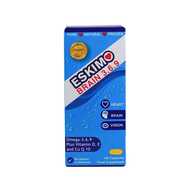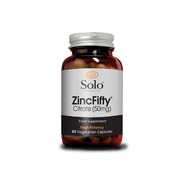Brain Balance - How better diet and nutrition can lead to better brain chemistry.
How we think, feel and behave everyday is very much dependent on the process of neurotransmission in the brain. These little transmissions are working all day long to help send messages to our brain. When the process is working at optimum level, that is when we feel good, have a positive outlook on life, are energised and enthusiastic, that is when the brain chemistry is balanced.
So in fairness, who wouldn’t want to have balanced brain chemistry and why on earth would we sabotage that balance with the food we put into our body. Why indeed. We are human that’s why and we all fall off the wagon every now and then.
I will detail below how, through better diet and nutrition you can achieve more balanced brain chemistry. Put simply our brain requires various nutrients and chemicals to make sure these messages are received. The transmissions follow a little pathway to the brain and along the way pick up various nutrients, transmitters and chemicals to get that message delivered. If we are missing some of those nutrients or chemicals then the message will not be delivered.
Some of the better known and researched transmitters are:
- Serotonin, this is often described as the “happy” neurotransmitter. Serotonin is then metabolised to melatonin, a very important hormone that promotes sleep. So if we don’t feel happy we don’t produce enough serotonin and if we don’t have enough serotonin we don’t feel happy and then it won’t get converted into melatonin and then we don’t sleep. If we don’t sleep we don’t feel happy. So you see how it becomes a downward spiral very quickly, with just one of the transmitters lacking.
- Dopamine, adrenalin and noradrenalin have a caffeine like affect on the brain, it provides, drive, energy, focus and an upbeat mood. Dopamine is the “reward” neurotransmitter and you will increase your levels by your addictive behaviour. Our addiction to coffee, sweet things, alcohol, cigarettes or other drugs increased our dopamine levels and this increases our energy, drive and upbeat mood, but be warned it is short lived, that is why it keeps you reaching for the next hit.
- Glutamate is an interesting one as it has a very stimulating effect on the brain, you will find this in very unusual places like MSG (mono sodium glutamate)
- GABA on the other hand is the one that quietens down the brain, leading to a sense of calm.
- Acetylcholine is the one responsible to aid memory, mental alertness and muscle function.
- Endorphins are the best, they have an opiate drug like effect and help to relieve pain, and promote that euphoric feeling of pure happiness and joy.
How would you know if your brain chemistry is unbalanced?
Below are just some of the signs and symptoms:
- Addictive behaviour
- Starch and sugar craving, binge eating or emotional eating
- Low pain threshold
- Poor sleep
- Inability to concentrate
- Hyperactivity
- Low mood
- Irritability
- Anxiety
- Poor memory
- Feeling of not being connected with others
- Fatigue and lack of motivation.
Of course there are other reasons why a person may experience these symptoms, and brain chemistry imbalance may not be the only factor.
Hormone imbalance is another for example a sudden drop in oestrogen may lead to the symptoms of low serotonin and a sudden rise may lead to symptoms of raised adrenalin and noradrenalin. So as I said before in previous blogs, you must look at the body as a whole and treat the bigger picture.
But an imbalance in brain chemistry can lead to all sorts of disease including, depression, schizophrenia, Alzheimer’s, Parkinson’s, childhood behavioural problems, alcoholism and other addictions, even irritable bowel syndrome can be linked to an imbalance of brain chemistry.
So how do we bring our brain chemistry back into balance?
Let’s look at diet.
Focus on low glycemic foods, glucose is the fuel for the brain but too much of it and it will fry your brain. It is fuel after all. A low glycaemic diet is a diet rich in whole foods, with plenty of vegetables, wholegrains, and seasonal fruit. Reduce and remove the processed foods, you will get used to it as you look at food labels and realise they, “say” with added Vitamin etc. They have processed the foods, taken out all the nutrients until it is a heap of crap and then they put the nutrients back in. Food is food, not an ingredient list.
Ok so let’s look at the nitty gritty: To make:
- Dopamine, adrenaline and noradrenalin you need the amino acid tyrosine or at least it precursor phenylalanine. You will find these in high protein foods, such as eggs, soya foods, spirulina, poultry, dairy, fish and seeds like pumpkin and sesame.
- Serotonin is made from the amino acid tryptophan. This is found in eggs, soy foods, spirulina, fish, cheese, pumpkin and sesame seeds, beans and pulses and red meat. But remember that the transmitters need a little help along the way to get the message delivered and a lot of these are found in protein foods, so make sure you eat some complete protein everyday as in animal proteins or if you are vegetarian make sure you have a combination of beans and grains daily.
- Acetylcholine requires choline, found in egg yolk, and lecithin granules.
You will need nutrients like B Vitamins, Vitamin C, Zinc, Iron, Copper, Magnesium, Calcium, and Omega 3, 6,9. You will get these from eating a whole food based diet, lots of vegetables, fruit, complete proteins, and whole grains.
So what should I not eat?
- Avoid foods that cause oxidation or inflammation, blackened or burnt meat and fish.
- Trans or hydrogenated fats, found in biscuits, cakes and spreads.
- All processed foods
- Sugar, fruit juices, alcohol, white starches like white pasta, bread and crackers
- Avoid food that makes you feel bloated or tired, common ones are gluten found in grains, wheat, sugar, and dairy foods.
You should look at trying to change or modify your lifestyle choices
- Get more sunshine if you can , it will top up your Vitamin D levels
- Get at least 8 hours sleep a night
- Regular exercise is highly beneficial
- Make time to engage in activity that makes you feel better
- Reduce your exposure to toxic metals, especially mercury, lead, and aluminium.
- Keep your brain active as you get older
- Help your body cope with stress, remove the stressor if you can if not, try yoga, meditation or try to change how you feel and think about the stressor.
All in all a balanced brain chemistry will lead to a more balanced you and every little change you make in diet and lifestyle will help you to achieve your goal.
Never give up as small changes achieve big results. Feel good on the inside.





